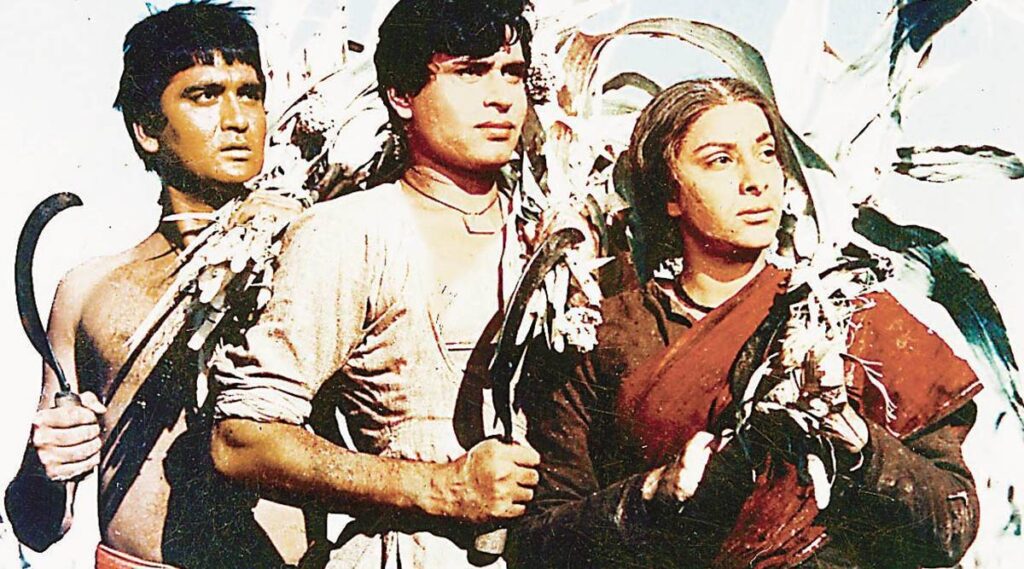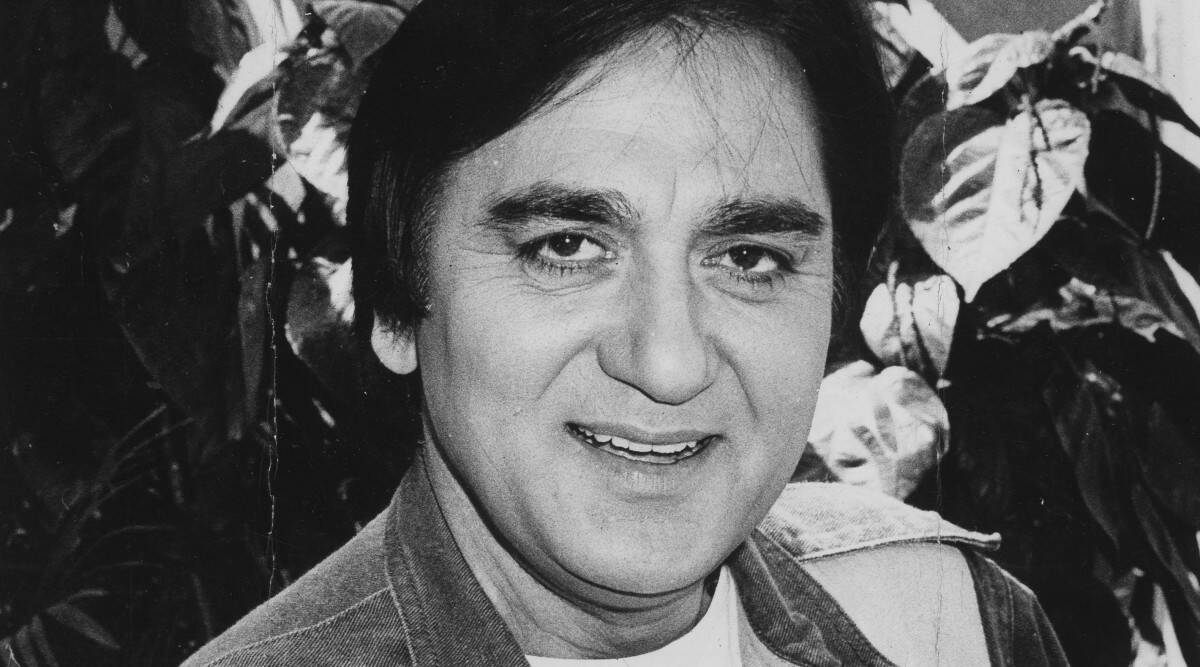When we talk about the golden era of Indian cinema, one name that stands tall is Sunil Dutt. An actor, producer, politician, and above all, a man of immense compassion, Dutt Saab left an indelible mark on Bollywood and beyond. This tribute to Sunil Dutt is not just about his films but also about the extraordinary life he led a life filled with struggle, success, and selflessness.
From his humble beginnings to becoming one of Hindi cinema’s most respected figures, Sunil Dutt’s journey is nothing short of inspiring. Let’s take a deep dive into his life, career, and the values he stood for.
Early Life and Childhood: The Making of a Legend
Sunil Dutt was born Balraj Dutt on June 6, 1929, in a small village called Khurd (now in Pakistan). His family migrated to India during the Partition, facing immense hardships along the way. The struggles of his early years shaped his resilient personality.
Growing up, Dutt was deeply influenced by the teachings of Mahatma Gandhi and believed in the power of non-violence and service. His father, Kulacharan Dutt, worked in the railways, and the family lived a modest life. Despite financial constraints, young Sunil was determined to make something of himself.
He completed his education in Lucknow and later moved to Mumbai (then Bombay) with dreams of becoming an actor. Little did he know that destiny had bigger plans for him.
The Radio Ceylon Days: Where It All Began
Before films, Dutt was a radio jockey at Radio Ceylon, hosting “Binaca Geetmala” (before Ameen Sayani took over). His rich baritone made him famous, but his first salary was just ₹50 a month.
Little-known fact: He initially used the name “Sunil” on radio because his birth name, Balraj, was already taken by another announcer!
The Rise of a Star: Sunil Dutt’s Film Career
Sunil Dutt’s entry into films was anything but easy. He started as a radio jockey at Radio Ceylon, where his deep, resonant voice caught attention. His big break came with B.R. Chopra’s “Sadhana” (1958), but it was Mehboob Khan’s “Mother India” (1957) that truly launched his stardom.

The Iconic Role of Birju in “Mother India”
Playing the rebellious son Birju opposite Nargis, Sunil Dutt delivered a performance that was both intense and unforgettable. The film became a cultural milestone, and interestingly, life imitated art when Dutt Saab and Nargis fell in love during its making.
A Versatile Actor and Filmmaker
Dutt wasn’t just an actor; he was a storyteller at heart. He produced and acted in films that carried strong social messages:
- “Yaadein” (1964) – India’s first single-actor film, showcasing his experimental side.
- “Mujhe Jeene Do” (1963) – Highlighting the struggles of women in a patriarchal society.
- “Padosan” (1968) – Proving his flair for comedy alongside Kishore Kumar and Mehmood.
His production house, Ajanta Arts, gave meaningful cinema a platform, proving that entertainment could also be enlightening.
Behind the Scenes of “Mother India”: The Fire That Sparked a Love Story
The Set Accident That Changed His Life
During Mother India’s shooting, a fire broke out in the straw hut set. Nargis was trapped inside. Without hesitation, Sunil Dutt ran into the flames and carried her out.
What few know:
- He suffered burns but refused medical help until Nargis was safe.
- Nargis, a strict vegetarian, broke her diet to make him mutton soup while he recovered—a gesture that touched him deeply.
A Secret Courtship
Their love story wasn’t easy. Nargis was already a superstar, while Dutt was a newcomer. They hid their relationship for years.
A sweet anecdote:
Sunil once borrowed a friend’s car to take Nargis on a drive, but it broke down. They spent hours pushing it, laughing, and talking—a memory he later called “more romantic than any film scene.”
Sunil Dutt: The Humanitarian and Politician
Beyond films, Sunil Dutt was a man of the people. After the 1984 anti-Sikh riots, he risked his life to save Sikh families, embodying the Gandhian principles he believed in.
The 1984 Riots: A Personal Mission
While most celebrities stayed indoors, Dutt roamed dangerous areas in a Sikh taxi driver’s turban, rescuing families. He even confronted mobs, shouting:
“If you want to kill them, kill me first!”
The MP Who Answered His Own Phone
Unlike other politicians, he gave his personal number to voters. His secretary once complained about late-night calls, to which Dutt replied:
“If a man calls at 2 AM, it means he has no one else to turn to.”
Political Journey
- Joined the Indian National Congress in 1984.
- Served as Member of Parliament (MP) for five terms.
- As Sports and Youth Affairs Minister, he worked passionately to promote sports in India.
His political career was driven by a desire to serve, not by power.
Awards and Recognition
Sunil Dutt’s contributions were widely celebrated:
- Padma Shri (1968) for his work in cinema and social causes.
- Filmfare Lifetime Achievement Award (1995).
- Multiple Filmfare nominations for his powerful performances.
Yet, his greatest reward was the love of the people.
Final Days and Immortal Legacy
Sunil Dutt passed away on May 25, 2005, leaving behind a legacy that transcends cinema. He was a man who lived with integrity, compassion, and courage.
Today, when we pay a tribute to Sunil Dutt, we remember not just the actor but the humanitarian, the father, and the hero who inspired millions. His life teaches us that true success lies in touching lives—something he did effortlessly.
Lesser-Known Facts About the Legend
- He Was a Trapped Soldier in 1962
During the Sino-Indian War, Dutt was shooting in Ladakh when Chinese troops advanced. The unit was evacuated by the army—an experience that deepened his patriotism. - The First Actor to Do a Single-Hander Film
Yaadein (1964) had no co-stars, no songs—just Sunil Dutt talking to himself for 90 minutes. Critics called it madness, but he proved them wrong. - His Last Wish
On his deathbed, he whispered to Sanjay: “Take care of your sisters.” Even in his final moments, he was a family man first.
Conclusion: A Legend Who Lives On
Sunil Dutt’s story is one of resilience, love, and selflessness. Whether through his films, his political work, or his acts of kindness, he proved that greatness isn’t just about fame—it’s about making a difference.
This tribute to Sunil Dutt is a humble attempt to honor a man who will forever remain in our hearts. As long as cinema exists, his legacy will shine bright.
“Dutt Saab, you are missed, but never forgotten.”
FAQs About Sunil Dutt: Honoring the Legend
Did You Know?
Dutt secretly funded the education of 21 Partition orphans – a fact revealed only in their adulthood when they appeared at his memorial service.

